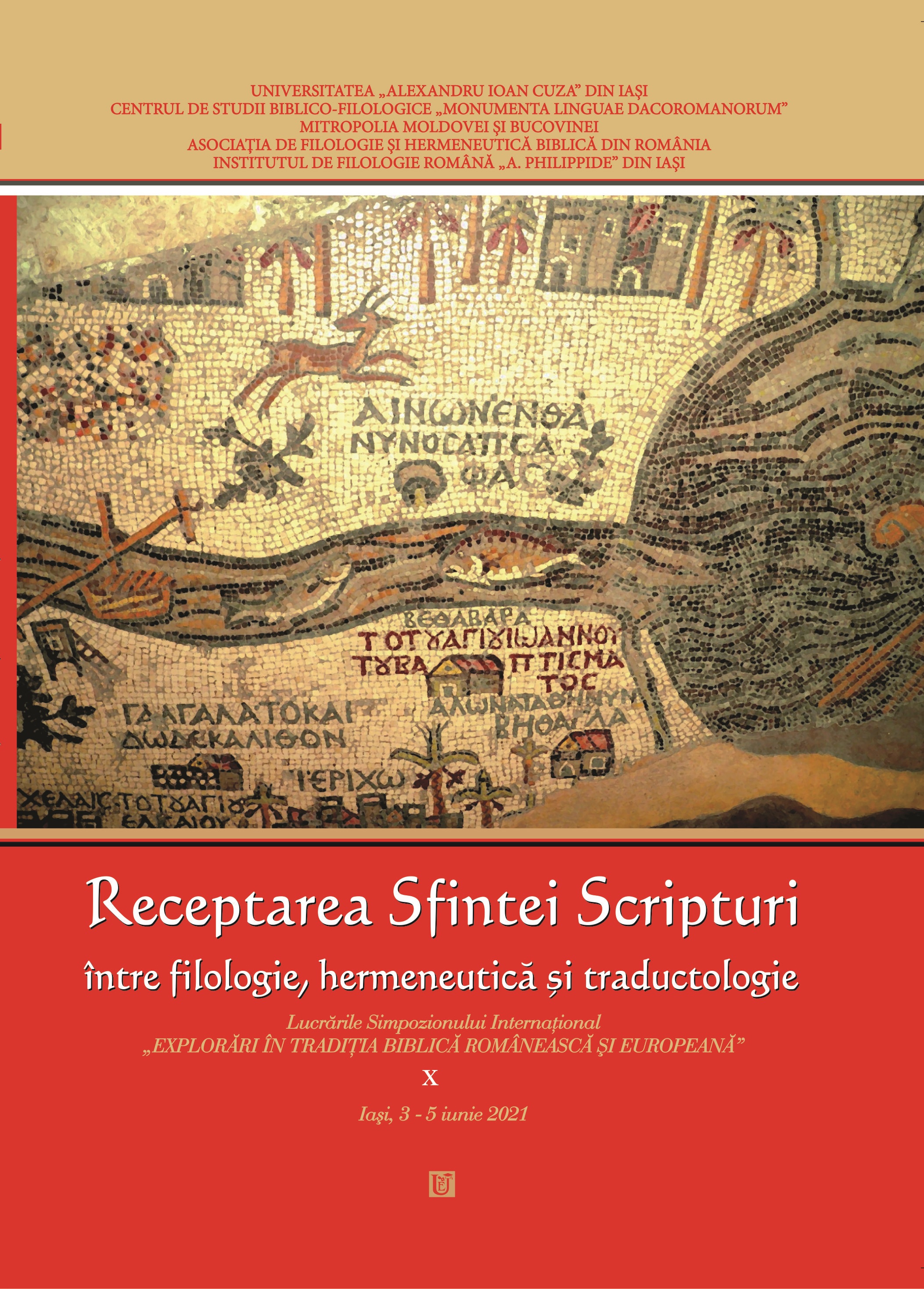Hermeneutică biblică și umanism renascentist în traducerea comentată a Cărții lui Iov de Luis de León
Biblical Hermeneutics and Renaissance Humanism in Luis of Leon’s Translation and Commentary to the Book of Job
Author(s): Mianda CIOBASubject(s): Christian Theology and Religion, Language and Literature Studies, Studies of Literature, Theology and Religion, Other Language Literature, Biblical studies, Philology, Translation Studies
Published by: Editura Universităţii »Alexandru Ioan Cuza« din Iaşi
Keywords: Luis of Leon; Book of Job; translation; biblical hermeneutics; gloss; paraphrase; Christian humanism;
Summary/Abstract: According to the constantly growing interest that current philological research shows in the work of the translator and biblical interpreter master Luis de León of the University of Salamanca numerous studies analyze how the option for literal reading of the sacred text is based on the technique of poetic paraphrasing and the alternative use of courtly love poetry language known as the “sweet new Italian style”. Such findings are especially valid for the way Luis de León translates and comments on the Song of Songs and on some of the Psalms. The same textual continuum between interpretation and translation (which the author postulates in various theoretical texts and which surprisingly anticipates essential ideas of modern interpretive theories, starting with Fr. Schleiermacher and continuing with H.-G. Gadamer and Paul Ricoeur), the same substantial interdependence between comprehension and explanation exists in the case of the annotated translation of the Book of Job that this paper examines. We intend to discuss the relationship between text and gloss, in order to emphasize the effectiveness of argumentative paraphrasing and amplification, relying on the principles of discourse grammar; the relationship between the above and the model of the thematic sermon, the main species of persuasive discourse at the end of the Middle Ages; finally, we intend to analyze the humanist-Christian dimension of the author’s position towards the intimate process of comprehending the sacred text, as a synthesis of epistemological rationalism and Neoplatonic visionary thinking.
Journal: Receptarea Sfintei Scripturi: între filologie, hermeneutică şi traductologie
- Issue Year: 10/2021
- Issue No: 1
- Page Range: 35-52
- Page Count: 18
- Language: Romanian

